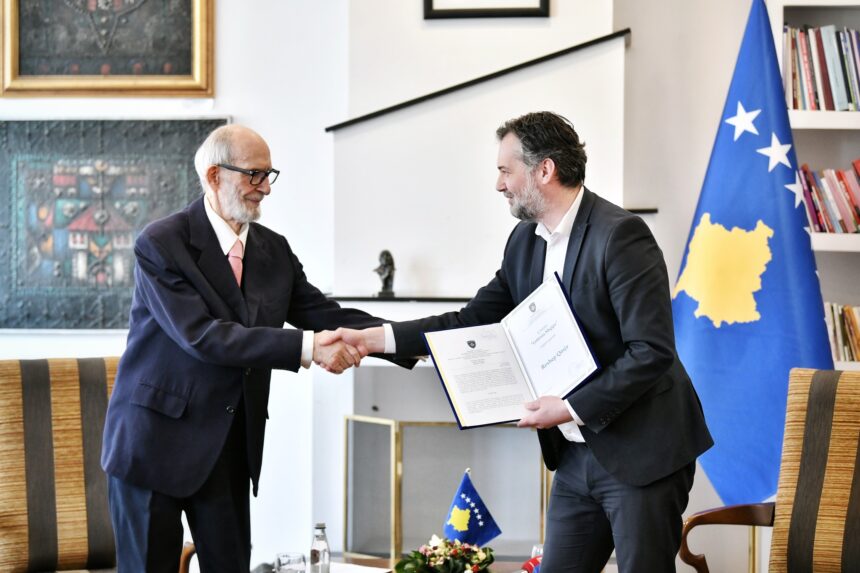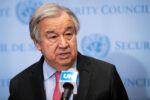Kosovo has awarded the distinguished writer and academic Rexhep Qosja with the country’s special “Albanian Literature” prize. The recognition follows Qosja’s vocal support for Prime Minister Albin Kurti and his Vetëvendosje party during the recent election campaign.
On March 18, Kosovo’s Minister of Culture, Hajrulla Çeku, announced the award, emphasizing Qosja’s invaluable contribution to Albanian culture and literature.
“Today, I had the honor of presenting Academician Rexhep Qosja with the ‘Albanian Literature’ award—a well-deserved recognition for his extraordinary contribution to our culture and literature. Through his literary works and academic studies, he has built an entire library of Albanological thought, literary criticism, journalism, and historiography. He is not only an exceptional scholar and writer but also a powerful intellectual voice in Albanian society,” Çeku stated.
Prime Minister Albin Kurti also praised Qosja, describing his intellectual legacy with poetic admiration.
“Climbing through thought is deepening. That is the impression I have when I walk up stairs filled with books. This is not fiction—it is the reality of Rexhep Qosja’s home in Velania. Instead of railings, books line the stairs. And at the top, another library awaits—stretching from ancient classics to the latest literary works. In the corner, before a window, sits an old typewriter, with an elder man still writing… This is Academician Rexhep Qosja—activist, politician, literary historian, critic, writer, and publicist. A former Nobel Prize nominee for Literature, today honored with our country’s special prize, ‘Albanian Literature,’ by the Ministry of Culture.”
Political Allegiances and Controversial Statements
Qosja has been an outspoken supporter of Albin Kurti, publicly endorsing Vetëvendosje in the lead-up to the February 9 parliamentary elections. He particularly praised the Law on the Seizure of Illegally Acquired Property and the government’s fight against nepotism.
“I will vote because Vetëvendosje, under the leadership of Prime Minister Albin Kurti, has undeniably elevated Kosovo’s domestic and international political prestige,” Qosja declared—ignoring the EU sanctions imposed on Kosovo.
Beyond his literary contributions, Qosja has recently adopted a militant tone, demanding the dismissal and prosecution of corrupt judges and prosecutors in Kosovo.
“If you do not dismiss and punish corrupt prosecutors and judges, you CANNOT HEAL Kosovo.
They have formed a cartel (a JUDICIAL DICTATORSHIP) and are protecting the systemic corruption that placed them in power,” Qosja asserted.
Qosja’s vocal political stance has sparked debate over whether the government’s recognition of his literary legacy is based on merit—or political allegiance.







